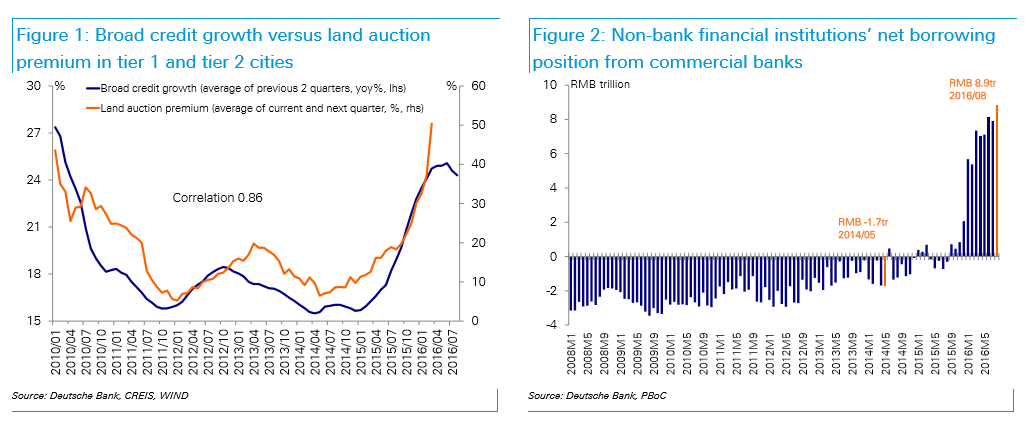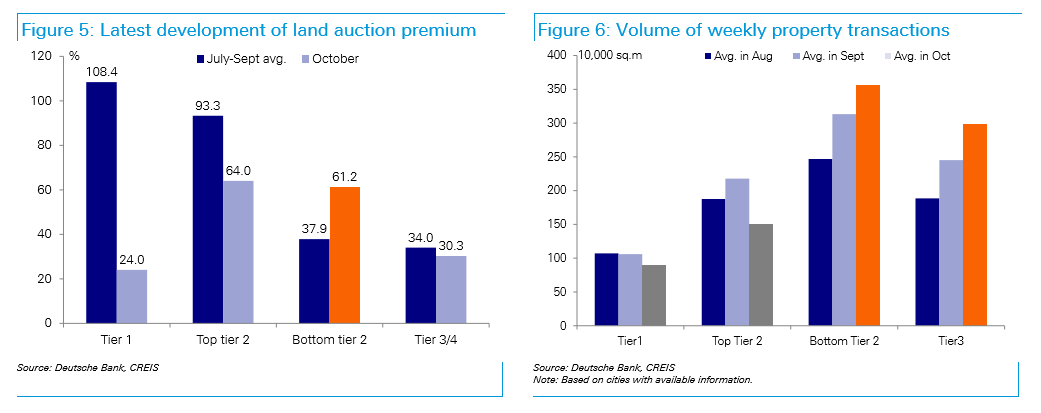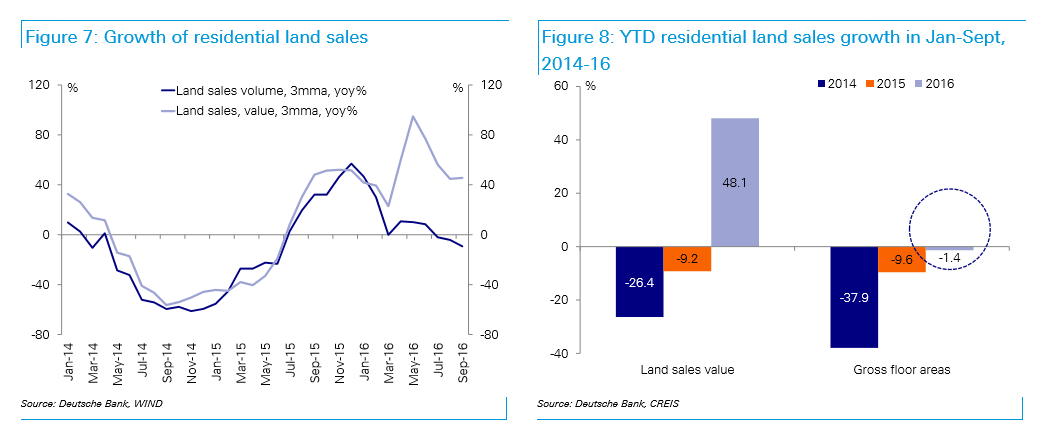The planned economy in China could lead to a cooling of the property market in certain cities, a Deutsche Bank (DE:DBKGn) report observed, pointing to a potential property bubble that might result in capital outflows. Earlier this month an HSBC report stated that China’s property bubble was more significant than the US sub-prime market in 2008.

Central planners putting dampener on real estate market
The Chinese central planners, seeing a hot property market in tier 1 and 2 cities since late September, have rolled out a series of government restrictions to influence market scales. The tightening measures include local purchase restrictions, raising mortgage down payment ratios, and tightening developers’ financing, the October 21 Deutsche Bank report from Asian Chief Economist Zhiwei Zhang and Economist Li Zeng noted.
Factors that had been influencing higher property prices include (i) broad credit growth; (ii) land supply and land price (land auction premium), and (iii) growth of mortgage loans, according to the report.
In the report, titled “China’s property bubble III: Policy tightened, land market cooling,” the pair of bank economists note it is not just the policy moves chilling the real estate market, but the very message the government is displeased with a potential bubble and wishes to cool speculative activity.
The property market restrictions come as the Chinese currency is anticipated to depreciate 20% against the US Dollar by the end of 2018, according to Deutsche Bank. This, coupled with a nasty deflationary property bubble leads, is expected to lead to further capital outflows from the Asian nation.

In addition to demand side, government planners consider supply side moves
In the past the government has worked to put its hand on the demand side of the market scale to influence behavior. This time, however, it is suppressing both the supply and demand side.
“We believe such supply-side measures, especially if followed by other cities as well, could cut deeper to the root of the property market problem,” Zhang and Zeng observed, pointing to nuanced government action. “Although most of the tightening measures so far are being executed by local government, it is widely believed by the market that the decision to tighten actually came from the central government and top policy makers.”
The Chinese government’s “one-city-one-policy” strategy may be successful in addressing rampant housing inflation in targeted cities, but the central planner moves to stifle a speculative property bubble may have unintended consequences. This could create a moral hazard of sorts:
One possible side-effect is that they may drive speculative funds to those cities that have not yet taken such actions. To some extent, this might be what the government wants to achieve – to help reduce the housing inventory in cities facing over supply issues. However, if reduction of housing inventory is primarily driven by investment purchases rather than real housing demand, it will most likely be a transfer of the bubble problem – from higher tier cities to lower cities and from property developers to property investors – instead of a healthy long-term solution.
Given the attempts to control the growth of credit and the market cycle, albeit manipulated ones, the land auction premium is expected to reach its peak in the first or second quarter of 2017.

Move to dampen China’s property bubble comes amid cooling economy
The moves to control credit growth might seem odd in a Chinese economy that is experiencing a downdraft. Gross Domestic Product growth in China has been slowing from a torrid 12% in 2010 to a more modest but on target 6.7% pace recently.
Why would government officials want to limit credit growth and cool down the real estate market in the face of a slowing economy?
“Controlling broad credit growth is not to tighten financial support to the real economy,” the report stated. “Rather, it is part of the government’s effort to crack down shadow banking and redirect financial resources from chasing speculative returns to the real economy.”
